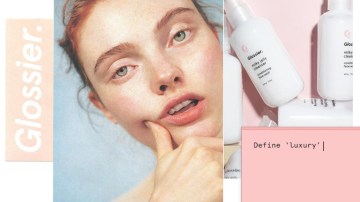 Harry’s and Heyday partner on co-branded face mask for men
Harry’s and Heyday partner on co-branded face mask for men This collaboration comes at a time when Harry’s and Heyday have been rolling out new brands and deepening their brand positioning. The new product, a detoxifying and exfoliating mask, is specifically aimed at broadening Harry’s grooming category and serving as a testbed for Heyday’s own product line.
 Skin Laundry branches into telemedicine
Skin Laundry branches into telemedicine Skin Laundry is charting its next phase of growth, which includes opening more locations, expanding its skin care line and getting into customized skin care prescriptions.
 Luxury makeup brush brand Artis delves deeper into skin care
Luxury makeup brush brand Artis delves deeper into skin care Artis, the luxury beauty brand that has sold over 1 million brushes in 30 countries and is in over 600 retail doors, wants to continue its growth trajectory by moving into skin care.
 What Glossier Play means for Glossier
What Glossier Play means for Glossier Glossier, the direct-to-consumer darling of the indie beauty world, is expanding its business with the launch of a new sub-brand called Glossier Play. The brand is quiet on what Glossier Play is, but its recent trademark filings hint at bigger plans to create a lifestyle brand.
 NuFace’s founder is making house calls to build influencer relationships
NuFace’s founder is making house calls to build influencer relationships In June 2018, the launched began an unpaid influencer campaign involving Tera Peterson, founder of NuFace, making free house calls to influencers in the Los Angeles area.
 Hair-care brand R and Co moves into cosmetics and fragrance categories
Hair-care brand R and Co moves into cosmetics and fragrance categories R+Co sees its new products in the cosmetics and fragrance spaces as experiments, as opposed to a full-blown category expansions. Traversing across product categories is an activity more hair care brands are getting behind.
 Benefit Cosmetics U.K. launches in-house influencer agency
Benefit Cosmetics U.K. launches in-house influencer agency The U.K. division of Benefit Cosmetics has launched an in-house influencer agency to streamline marketing operations, as the 43-year-old brand continues to increase its digital marketing efforts.
 Fragrance company Scentbird to launch skin-care subscription service
Fragrance company Scentbird to launch skin-care subscription service The DTC fragrance company is offering 50 skin-care items from 13 brand in a subscription package that starts at $14.95 a month.
 L’Oreal Canada expands AI ambitions through online advertising
L’Oreal Canada expands AI ambitions through online advertising L’Oréal Canada has used chatbots within Facebook Messenger since April 2017 for its La Roche-Posay and Vichy brands, but it will now be expanding the offering to its larger online advertising.
